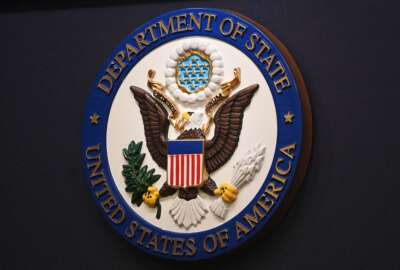Securing federal networks: Evolving to an enterprise approach
The Cybersecurity and Infrastructure Security Agency reports on the progress agencies have made to up their cyber defenses over the past four years.
- The Cybersecurity and Infrastructure Security Agency reports on the progress agencies have made to up their cyber defenses over the past four years. CISA said it now has access to 920,000 endpoint detection and response sensors across 51 agencies. In a new blog post, CISA reports that its Protective Domain Name System service, set up in 2021 has blocked 1.86 billion malicious attempts to connect to agency networks. And agencies have successfully patched 99% of the bugs posted to CISA’s Known Exploited Vulnerabilities list. CISA said the migration to zero trust architecture will continue to be a top federal cybersecurity priority in the coming years.
- The Office of Personnel Management is finalizing rules meant to bring the wages of blue collar feds more geographically in line with their General Schedule counterparts. Under the changes set to take effect in October, OPM said nearly 15,000 workers will see higher wages. Around 500, meanwhile will get lower pay under the new wage area boundaries. Most of the affected employees work for the departments of Defense and Veterans Affairs. (OPM finalizing rules to bring blue collar wages in line with General Schedule - Office of Personnel Management via Federal Register)
- The Postal Service is offering early-retirement buyouts to mail handlers who work in the agency’s mail processing facilities, and other USPS employees who work support positions. USPS is offering lump-sum incentive payments worth up to $15,000 dollars to employees who agree to retire from the agency by the end of April. Eligible employees include mail handlers, postal clerks, IT and accounting employees and those working in motor vehicle services. USPS said it’s offering the buyouts to reduce its headcount at overstaffed facilities. ( USPS offers up to $15K in early retirement buyouts to cut employees in ‘overstaffed’ facilities - Federal News Network)
- Senate committees postpone confirmation hearings for several Trump administration cabinet picks. The Senate VA Committee said it won’t hold a confirmation hearing this week as planned for former Congressman Doug Collins (R-Ga.), Trump’s pick to run the Department of Veterans Affairs. That’s because the FBI has not completed its background check on the nominee. That’s led to similar delays for former Congresswoman Tulsi Gabbard, Trump’s pick for director of national intelligence, and Robert F. Kennedy, Jr., his pick to run the Department of Health and Human Services. A hearing for former Governor Doug Burgum (R-N.D.), Trump’s pick to serve as Interior secretary, is also delayed because the Office of Government Ethics has yet to complete its review. (Trump Cabinet confirmation hearings postponed over vetting delays - Federal News Network )
- Agencies will be able to phase in REAL ID requirements starting in May. The Transportation Security Administration finalized a rule this week that maintains the REAL ID deadline of May 7 of this year. But TSA’s rule also allows agencies to start enforcement in a gradual fashion and ramp up the requirements over a two-year period. The REAL ID regulations set specific standards for state-issued identification cards that can be accepted by federal agencies. Last year, TSA estimated that just 56% of drivers licenses and ID’s in circulation nationwide were compliant with the REAL ID standards.
- The Defense Innovation Board is urging the Defense Department to move a significant portion of the research, development, test, and evaluation budget out of the traditional and rigid Planning, Programming, Budgeting, and Execution process. The board also recommends expanding the Defense Innovation Unit into a fully staffed central office that serves as an entry point for both traditional and non-traditional vendors. In addition, board members recommend removing certain contracting burdens, such as eliminating defense contract audit authority audits and accounting reviews for firm fixed-price contracts under $2 million. Over the last several years, the DIB has issued more than 150 independent, actionable recommendations. The Defense Department has implemented around 40% of the initial recommendations so far. (DIB pushes for contracting reforms, expanded vendor access - Defense Department)
- Over 1,800 California National Guardsmen have been activated to help fight the Los Angeles area wildfires. The troops will assist federal and local firefighting crews and military police working in support of local law enforcement. Additionally, eight C-130 aircraft equipped with Modular Airborne Firefighting Systems are assisting with firefighting efforts. Over the weekend, the Air National Guard flew six MAFFS missions, dropping over 16,000 gallons of fire suppressant. About 500 active-duty Marines from Camp Pendleton, a major base in Southern California, and 10 Navy helicopters with water delivery buckets, are still on standby. (National Guard activates over 1800 troops to assist with California wildfires - Defense Department)
- New names for two of the Navy's future carriers. The Gerald R. Ford-class carriers will bear the names of two former presidents, Bill Clinton and George W. Bush. They'll be the fifth and sixth ships of the Ford class when they're completed in several years. So far, only one of the new class, the Gerald R. Ford, is in active Navy service. President Biden said he spoke to both ex-presidents, and says both were "deeply humbled" by the naming decision.
Copyright © 2025 Federal News Network. All rights reserved. This website is not intended for users located within the European Economic Area.
Michele Sandiford
Michele Sandiford is a digital editor at Federal News Network.






